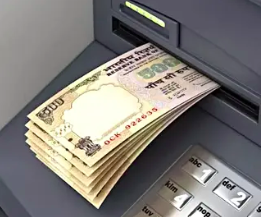Nyay Patra or Anyay Patra?
In the vibrant and complex world of Indian politics, the recent assembly elections in Karnataka have unveiled a troubling trend that demands our attention. The Congress party’s deceptive strategy of offering financial incentives and free bus rides to women has sparked a debate that goes beyond immediate electoral gains. This model was first introduced in Karnataka, replicated in Telangana and last week’s Lok Sabha elections, raises fundamental questions about the integrity and future of our democracy in India. This is from a party which is mindlessly blaming the ruling NDA government of misusing the ideals of democrasy and constitution of the nation. It is “like the coal calling the others black.”
A Strategy Rooted in Desperation
When Congress introduced financial incentives and free bus rides in Karnataka, it wasn’t just an electoral strategy—it was a lifeline thrown to a desperate party. These incentives, designed to sway voters, exploit the vulnerabilities of our most disadvantaged citizens. For those struggling to make ends meet, the promise of financial relief is irresistible. But what does this say about the state of our democracy?
The Immediate Lure of financial Incentives.
For many, the promise of immediate financial aid is a beacon of hope in an otherwise bleak landscape. It’s hard to fault anyone for accepting such an offer when faced with poverty and uncertainty. But this strategy preys on the immediate needs of the poor, turning elections into transactions rather than a democratic process. It shifts focus away from meaningful policy discussions and long-term solutions to a simplistic, short-term gain.
Repeating the Pattern in Telangana
Congress’s replication of this model in Telangana underscores a troubling pattern. The allure of quick financial and free services was enough to tip the scales in their favor. But this isn’t just about winning elections—it’s about the method and its implications. By using financial incentives to secure votes, Congress is undermining the very principles of a fair and free electoral process.
The BJP’s Missed Opportunity to Safeguard Democracy
Amidst these tactics, the BJP had a golden opportunity to address this issue when they held a significant majority in the central government till the election dates was announced in April 2024. They could have introduced legislation to ban financial incentives in elections, setting a precedent for fairer practices. Unfortunately, this chance was missed, allowing these practices to continue unchecked.
Legislation as a Solution
Introducing laws to ban financial incentives is not just about leveling the playing field—it’s about preserving the integrity of our elections. Such legislation would ensure that political parties compete based on their vision, policies, and ability to lead, rather than on who can offer the most money. This move would protect our democracy from being reduced to a mere marketplace of votes.
Congress’s Strategy in Central Elections
The central elections saw Congress once again promising financial incentives—this time, ₹1 Lakh per year to poor families. This strategy, while effective in garnering votes, is a glaring example of short-term thinking. It highlights a broader issue within the INDI alliance, where financial promises are used as a crutch to gain immediate support to their meek policies. Nyay Patra or Anyay Patra?
Bankrupt Policies and Stunted Progress
The policies underpinning these financial incentives often lack foresight and sustainability. By focusing on immediate voter satisfaction rather than long-term growth and development, these strategies can lead to a stagnation of progress. The INDI alliance’s continued reliance on such deceptive tactics highlights their inability to formulate robust, forward-thinking policies that can drive India’s growth and development. Nyay Patra or Anyay Patra?
The Long-Term Impact on Progress
Such promises may bring temporary relief, but they do nothing to address the root causes of poverty and underdevelopment. Instead, they create a cycle of dependency that hinders genuine progress. The focus shifts from sustainable development and economic growth to immediate, albeit fleeting, financial benefits. Nyay Patra or Anyay Patra?
A Future Built on Sustainable Policies
To counter this, the BJP must champion policies that offer long-term solutions. This means investing in education, organic food, healthcare, infrastructure, and economic reforms that create jobs and improve living standards. By focusing on sustainable development, the BJP can present a compelling vision for the future that doesn’t rely on financial handouts.
False Promises
The ‘Nyay Patra’ seems to have become ‘Anyay Patra’. The poor in Karnataka are expressing deep frustration because, despite casting their votes, some claim to have never received the promised ₹2,000 per month. This disappointment echoes in Telangana, where similar promises were made but not fulfilled. In the central elections, voters from both states turned to the BJP, revealing their realization that Congress’s financial promises were merely a tactic to secure votes. It’s evident that these promises were never meant to be kept, leaving many feeling betrayed and used. The betrayal of ₹1 lakh/Year has also come to the fore in the media now, many thousands of people are on the streets demanding their ₹8,333/per month, saying they need the promised some. It is for the congress party to answer, Nyay Patra or Anyay Patra? Watch this video to know more.
Conclusion
In the dynamic arena of Indian politics, election pundits and strategists often paint a picture of voter fatigue, suggesting that after ten years of Modi’s rule, the electorate is weary. But this narrative oversimplifies a far more complex reality. The recent elections have shown that it’s not voter fatigue but the allure of financial incentives that has influenced voting behaviour. This wily tactic, employed by Congress in Nyay Patra manifesto, has caused significant dents in the BJP’s electoral performance. The lure of money has jerked the loyal BJP electorate to swap sides towards the congress and its crony alliance parties.Nyay Patra or Anyay Patra? However, despite these challenges, the BJP is poised to form the government once again.
The use of financial incentives in elections is a short-sighted strategy with long-term consequences. It undermines the principles of democracy and hampers sustainable development. The BJP must take decisive action to ban these practices and focus on policies that offer lasting benefits to the electorate. By doing so, we can ensure a fair, democratic process that prioritizes the true progress and development of our nation.

